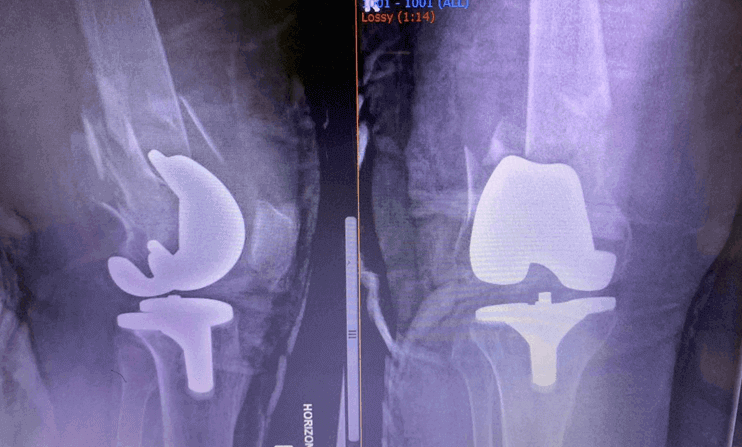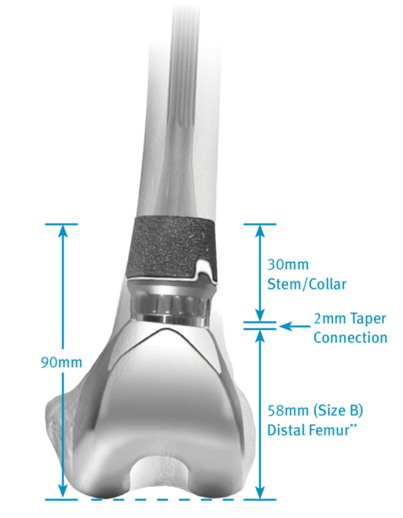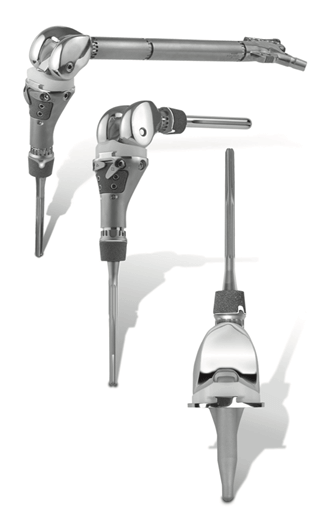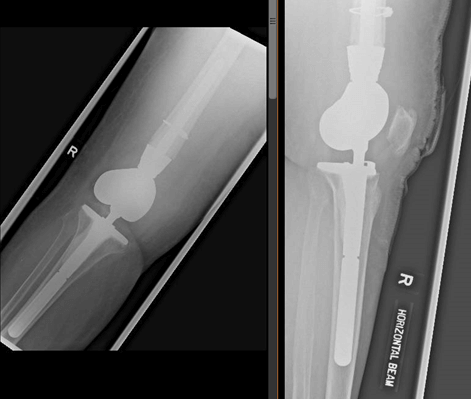Megaprosthesis Total Knee Replacement For Periprosthetic Fracture
There are some patients that I will never forget despite the thousands I treat each year. It is either because of the severity of their orthopaedic conditions or how they turned out after their treatment. Every difficult case is a major learning experience for me, lessons learnt and cherished for my future patients. Sometimes you are all they have.
They have endured a difficult journey and have ended up in your clinic for help. We have been blessed with certain clinical and orthopaedic skills to help our patients. This is what surgeons do.
About Mdm CC*
Madam CC is in her fifties and owns a stall. She has always suffered with knee pain in the younger days and never really participated in sports. Over time, the pain became too unbearable and her knee was so bowed that she could hardly run her food stall and provide for her family.
In her early fifties, she underwent a knee replacement procedure for her arthritic right knee and made a good recovery and was back to work after about 2 months.
Unfortunately, Madam CC sustained a fall due to the slippery conditions at the market. She landed heavily on her right operated knee and experienced severe pain. X-rays showed that she had fractured her bone around the knee replacement implant. The implant was completely loose, and she needed revision surgery to manage her injuries.

Assessment and procedure
We explained to Madam CC that she would require surgery.
After assessment, it was discovered that the bones around her loose implants could not be salvaged and the fracture could not be repaired with her old implants still in the knee.
Revision surgery with bigger implants were required to replace not just her current implants but also her fractured bones. This would enable her to start her rehabilitation as early as possible before her muscles weaken and atrophy.


The surgery lasted about 3 hours. The first part of it was to enter her knee joint through her old surgical scar. All the fracture fragments and loose knee implant were removed without much difficulty.
We took measurements of the bone gaps in the knee and calculated which combination of implants would be needed to fit the mega-prosthesis. This included the femur and tibia components, as well as the plastic component in between. We were satisfied with the stability of her knee implants and proceeded to remove the trial implants.
After further washing out her knee to prevent any future infection, we prepared all the various components of her actual mega-prosthesis implant. This was a crucial part of the surgery that needed coordination from the surgical team surgeon, nurses, and the implant company representatives.
The correct sized components were removed from their individual boxes and assembled with nuts and bolts. The bone cement was prepared, and all members of the surgical team were on standby.
We proceeded to fill the femur bone and tibia bone with cement before inserted the respective components in position. The leg was finally straightened, excess cement removed, and remaining cement allowed to harden.
There was an audible sigh of relief when this was finally done! 
When dealing with complex implants, it is crucial that each component is sized correctly, placed in an optimal position, and held with the right bolts. Cement also brings some excitement into the equation because of the time factor. You do not want to put it in when it is too watery or too late when it is starting to harden. While the clock is ticking, this sequence of events needs to be executed timely and without any mistakes.

Post-procedure
We were happy to see Madam CC doing her physiotherapy in hospital just a day after her surgery. She was walking with a frame followed by a walking stick. She was happy to be able to walk as she feared not being able to walk would cost her her business.
Madam CC continued to do well in her out-patient rehabilitation program and now runs her stall without any walking aid.
*Names have been changed to protect the identity of individuals.